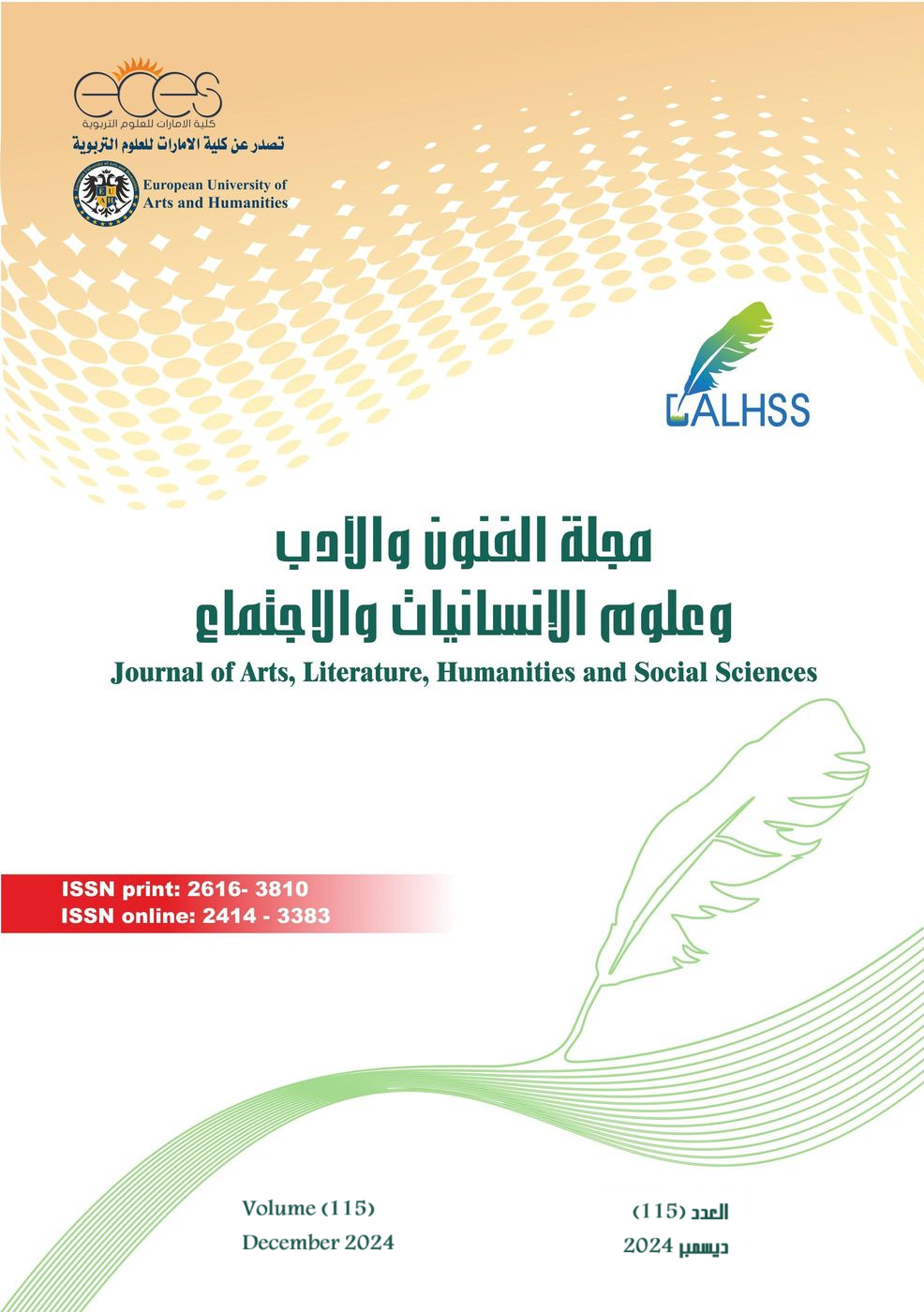The Psychological Impact of the Use of AI in Digital Forensics on Criminal Investigators
الملخص
As a transformative technology, Artificial Intelligence (AI) amplified the precision and efficiency of digital forensics investigations following its integration in the criminal investigations domain.
This study aimed at exploring the psychological impact of AI and digital forensics on criminal investigations in modern forensic psychology.
An online survey was conducted using Google Forms, in which forensic investigators were required to fill in a closed-ended survey. A total of 102 digital forensic investigators agreed to participate in this study and responded to the survey prompts.
The GAD-7 scale had a mean score of 9.20, confirming significant instances of “moderate” and “severe” anxiety among participants. The PSS mean score of 21.92 indicates at least “moderate stress” among the forensic investigators included in this study. The collected data confirms a positive linear relationship between AI usage and investigators’ psychological impact (r = .470, p < .001).
The adoption of AI in forensic procedures leads to the emergence of numerous psychological issues, such as anxiety and depression, among forensic specialists.
المراجع
2. Akter, S., Dwivedi, Y. K., Sajib, S., Biswas, K., Bandara, R. J., & Michael, K. (2022). Algorithmic bias in machine learning-based marketing models. Journal of Business Research, 144, 201-216.
3. Almazrouei, M. A., Kukucka, J., Morgan, R. M., & Levy, I. (2024). Unpacking workplace stress and forensic expert decision-making: From theory to practice. Forensic Science International: Synergy, 8, 100473.
4. Arshad, H., Jantan, A. B., & Abiodun, O. I. (2018). Digital forensics: Review of issues in scientific validation of digital evidence. Journal of Information Processing Systems, 14(2), 346-376.
5. Ateş, E. C., Bostancı, G. E., & Msg, S. (2020). Big data, data mining, machine learning, and deep learning concepts in crime data. Journal of Penal Law and Criminology, 8(2), 293-319.
6. Busey, T., Sudkamp, L., Taylor, M. K., & White, A. (2022). Stressors in forensic organizations: risks and solutions. Forensic Science International: Synergy, 4, 100198.
7. Chang, R. C. (2024). Using Virtual Reality to Enhance Forensic Science Education: Effects on CSI Learning Achievements, Situational Interest and Cognitive Load. Journal of Criminal Justice Education, 1-20.
8. Deeks, A. (2019). The judicial demand for explainable artificial intelligence. Columbia Law Review, 119(7), 1829-1850.
9. Dunsin, D., Ghanem, M. C., Ouazzane, K., & Vassilev, V. (2024). A comprehensive analysis of the role of artificial intelligence and machine learning in modern digital forensics and incident response. Forensic Science International: Digital Investigation, 48, 301675. https://doi.org/10.1016/j.fsidi.2023.301675
10. Edmond, G., Tangen, J. M., Searston, R. A., & Dror, I. E. (2015). Contextual bias and cross-contamination in the forensic sciences: the corrosive implications for investigations, plea bargains, trials and appeals. Law, Probability and Risk, 14(1), 1-25.
11. Edmond, G., Towler, A., Growns, B., Ribeiro, G., Found, B., White, D., ... & Martire, K. (2017). Thinking forensics: Cognitive science for forensic practitioners. Science & Justice, 57(2), 144-154.
12. Embarak, O., Almesmari, M., Aldarmaki, F., & Alameeri, M. (2024). Criminal Investigation Using Deep Learning and Image Processing. In Industry 4.0 Key Technological Advances and Design Principles in Engineering, Education, Business, and Social Applications, 233-254.
13. Jarrett, A., & Choo, K. K. R. (2021). The impact of automation and artificial intelligence on digital forensics. Wiley Interdisciplinary Reviews: Forensic Science, 3(6), e1418.
14. Kordzadeh, N., & Ghasemaghaei, M. (2022). Algorithmic bias: review, synthesis, and future research directions. European Journal of Information Systems, 31(3), 388-409.
15. Kruger, F., Queen, Z., Radelva, O., & Lawrence, N. (2024). Comparative analysis of scientific approaches in computer science: A quantitative study. International Transactions on Education Technology (ITEE), 2(2), 120-128.
16. Ngiam, K. Y., & Khor, W. (2019). Big data and machine learning algorithms for health-care delivery. The Lancet Oncology, 20(5), e262-e273.
17. Nizamani, M., Ramzan, F., Fatima, M., & Asif, M. (2024). Investigating How Frequent Interactions with AI Technologies Impact Cognitive and Emotional Processes. Bulletin of Business and Economics (BBE), 13(3), 316-325.
18. Rastogi, C., Zhang, Y., Wei, D., Varshney, K. R., Dhurandhar, A., & Tomsett, R. (2022). Deciding fast and slow: The role of cognitive biases in ai-assisted decision-making. Proceedings of the ACM on Human-Computer Interaction, 6, 1-22.
19. Sanclemente, G. L. (2022). Reliability: Understanding cognitive human bias in artificial intelligence for national security and intelligence analysis. Security Journal, 35(4), 1328-1348.
20. Serdar, C. C., Cihan, M., Yücel, D., & Serdar, M. A. (2021). Sample size, power and effect size revisited: simplified and practical approaches in pre-clinical, clinical and laboratory studies. Biochemia medica, 31(1), 27-53.
21. Slota, S. C., Fleischmann, K. R., Greenberg, S., Verma, N., Cummings, B., Li, L., & Shenefiel, C. (2023). Many hands make many fingers to point: challenges in creating accountable AI. Ai & Society, 1-13.
22. Tortora, L. (2024). Beyond Discrimination: Generative AI Applications and Ethical Challenges in Forensic Psychiatry. Frontiers in Psychiatry, 15, 1346059.
23. Vredeveldt, A., van Rosmalen, E. A., Van Koppen, P. J., Dror, I. E., & Otgaar, H. (2024). Legal psychologists as experts: Guidelines for minimizing bias. Psychology, Crime & Law, 30(7), 705-729.
24. Wang, W., Chen, L., Xiong, M., & Wang, Y. (2023). Accelerating AI adoption with responsible AI signals and employee engagement mechanisms in health care. Information Systems Frontiers, 25(6), 2239-2256.
الحقوق الفكرية (c) 2024 Dr. Maha Abdulghani Mohammed Ateyah

هذا العمل مرخص حسب الرخصة Creative Commons Attribution-ShareAlike 4.0 International License.



